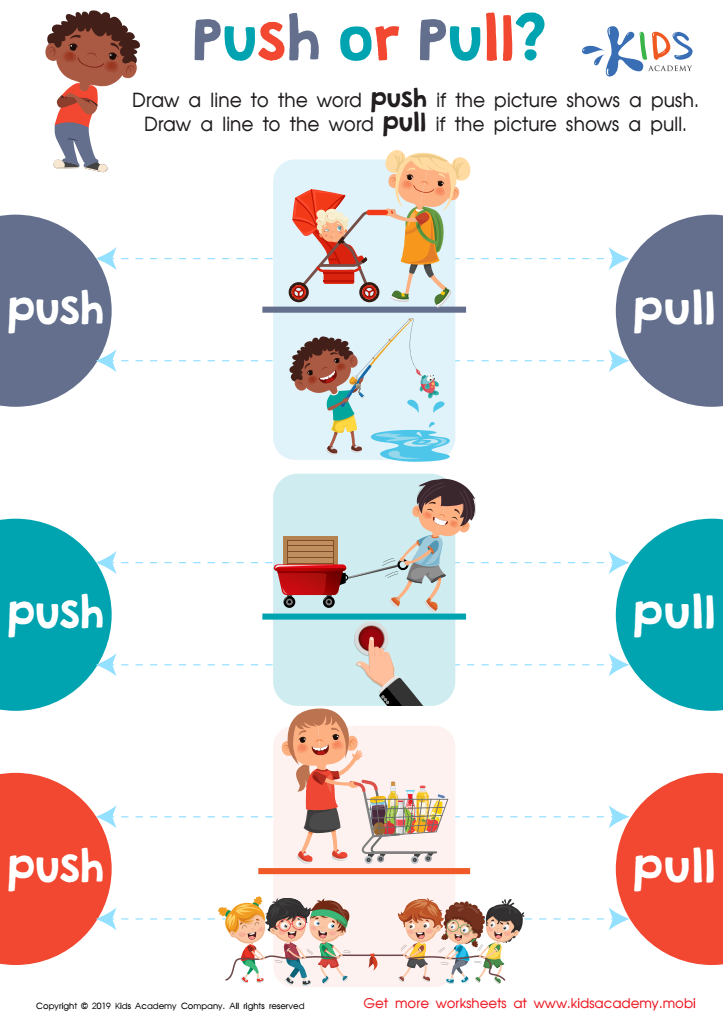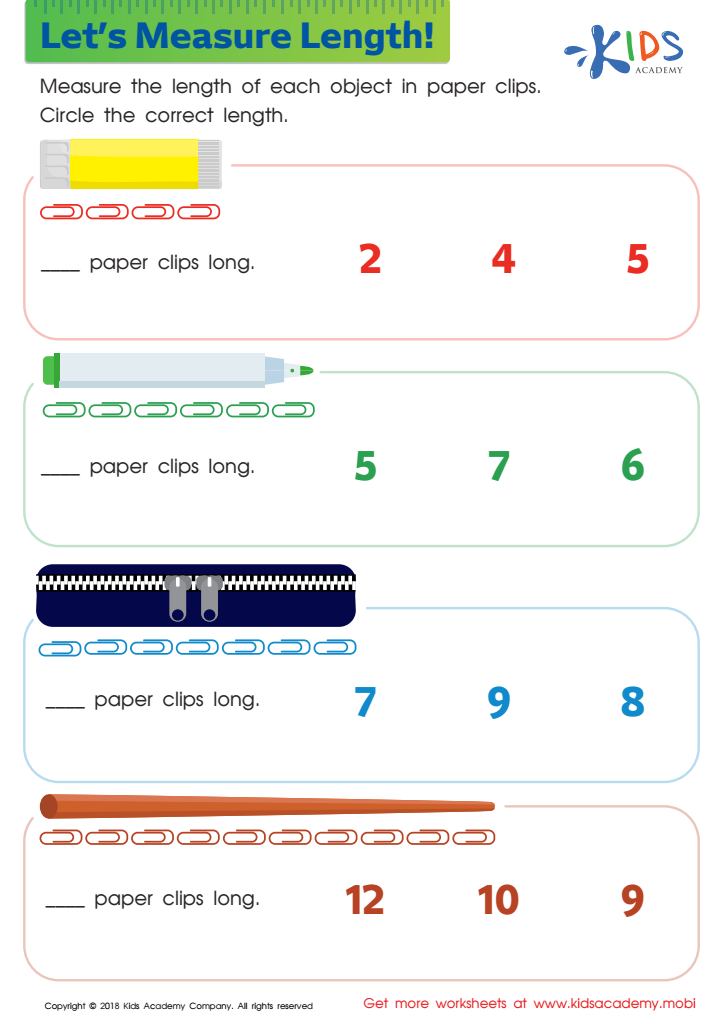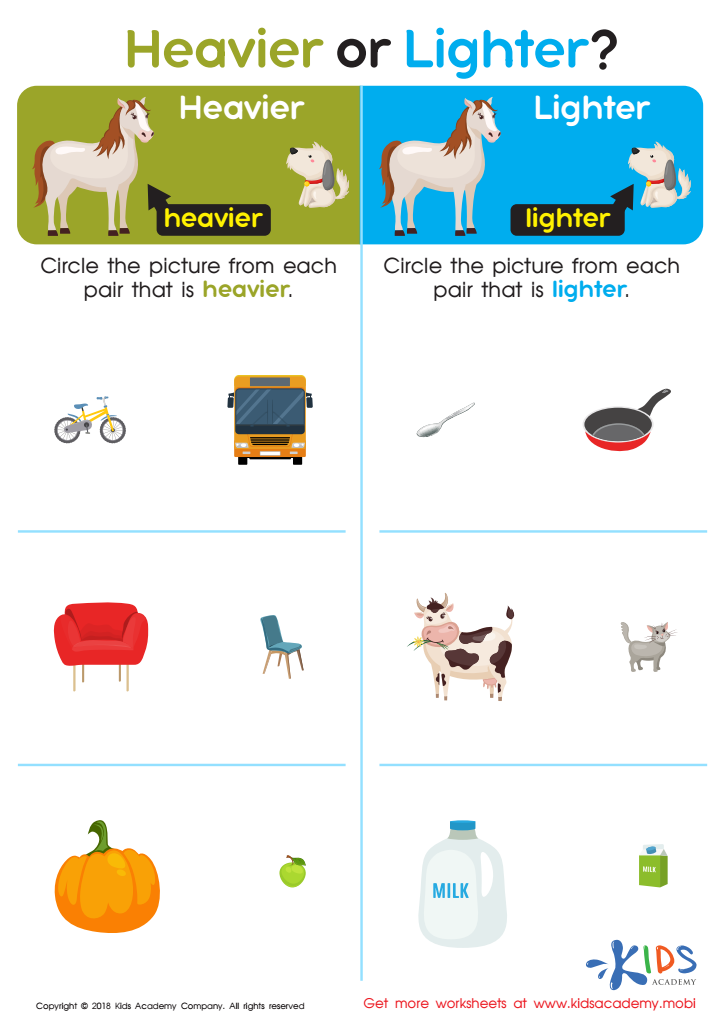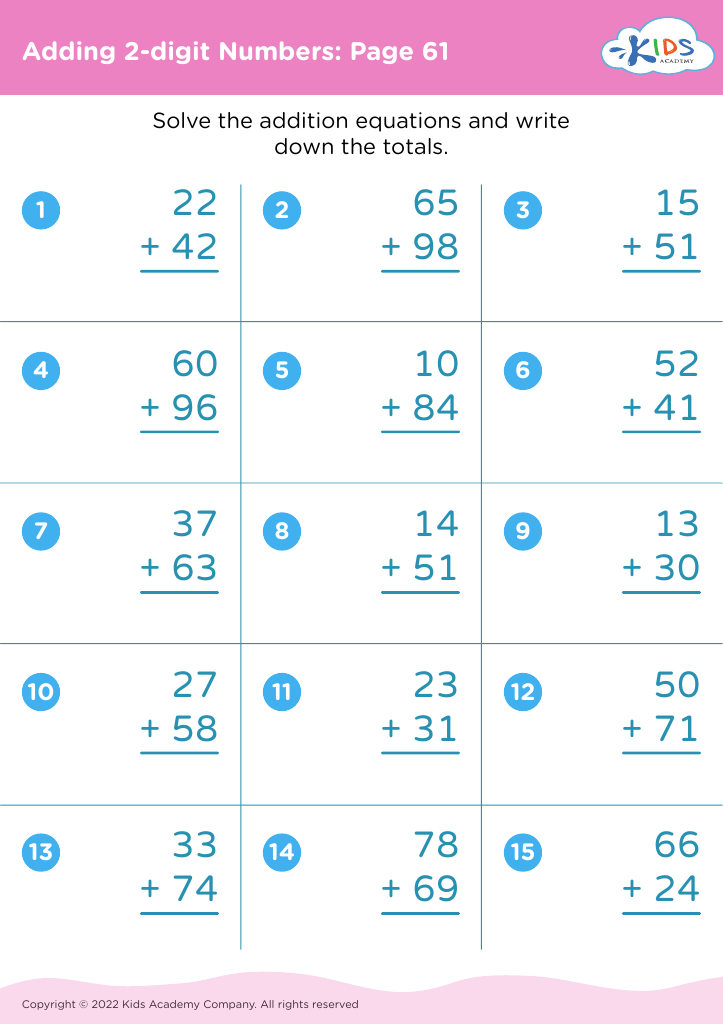Developing observational skills Worksheets for Ages 4-7
4 filtered results
-
From - To
Enhance your child's observational skills with our specially designed worksheets for ages 4-7! These engaging activities encourage children to explore their surroundings, notice details, and think critically. From fun matching games to delightful picture analysis, our worksheets are crafted to stimulate curiosity and boost focus. Each task promotes essential skills, such as classification, comparison, and reasoning, laying a strong foundation for future learning. Ideal for both home and classroom use, these worksheets make learning enjoyable and interactive. Start nurturing your child's observational prowess today and watch their natural curiosity thrive! Explore the full collection for countless learning opportunities.


Push or Pull? Worksheet


Lets Measure Length Worksheet


Heavier or Lighter? Worksheet
Developing observational skills in children aged 4-7 is crucial for their holistic growth. At this developmental stage, children are naturally curious and eager to explore their surroundings. By encouraging observational skills, parents and teachers can help children learn to notice details, identify patterns, and make connections in their environment, which are foundational for critical thinking and problem-solving.
Moreover, strong observational skills enhance language development as children learn to describe what they see, ask questions, and engage in discussions. This enrichment fosters communication skills and boosts confidence when expressing thoughts and ideas.
In addition, fine-tuning observational abilities lays the groundwork for scientific thinking. Children begin to explore concepts such as cause and effect, classification, and understanding differences, all of which contribute to scientific reasoning.
Furthermore, mindfulness practices rooted in observation help children develop emotional intelligence. Recognizing expressions, body language, and emotions in others cultivates empathy and self-awareness.
Ultimately, when parents and teachers prioritize observational skill development, they equip children with tools that foster cognitive, social, and emotional growth, creating a strong foundation for lifelong learning. Thus, encouraging these skills at an early age benefits academic achievement and nurtures well-rounded individuals.
 Assign to My Students
Assign to My Students



















